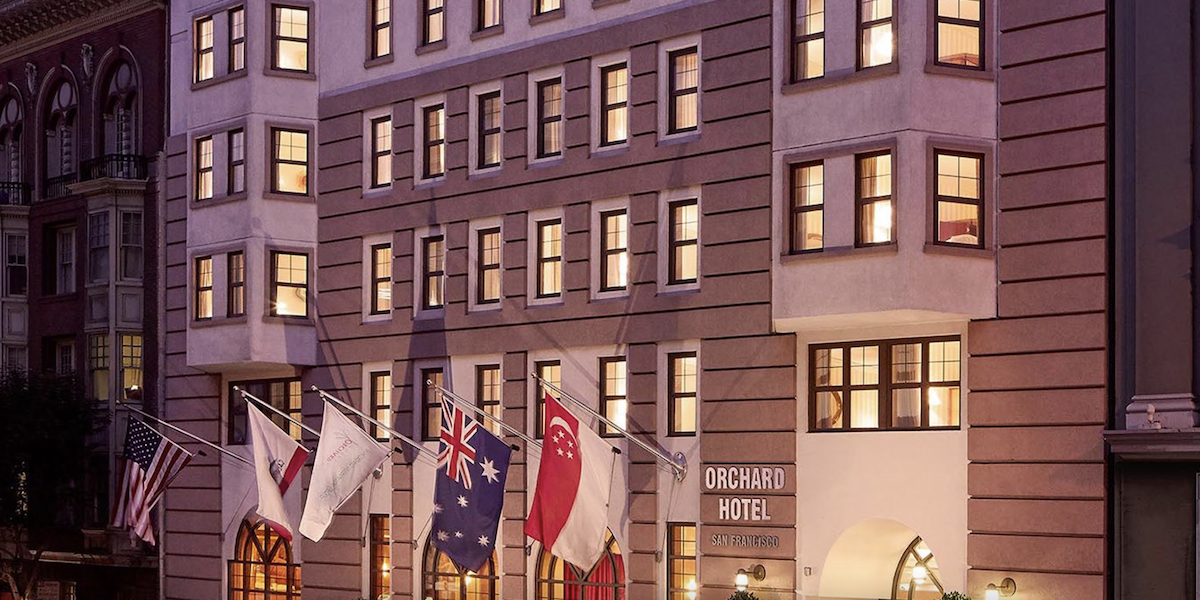
- Customer
- Marina Mechanical
- Building
- Orchard Hotel San Francisco
- Highlights
- 1. Quickly uncovered potential short-cycling issues 2. Investigated and resolved chiller inefficiencies 3. Recommendations resulted in more than $9,000/year in energy savings
“Verdigris provides a phenomenal amount of data. It allowed us to drill down and identify the issues that we would not have otherwise been able to catch. Verdigris was collecting data down to the minute and with that data we were able to spot times when chillers were running when they shouldn’t be.”
— Jim Hussey, CEO, Marina Mechanical
The Challenge
Marina Mechanical is a highly-skilled energy service company (ESCO) in the San Francisco Bay Area. In 2017, Marina was hired by the energy-conscious Orchard Hotel Group to identify opportunities to improve energy use. Normally, this would require installing dozens of data loggers with labor-intensive on-site data collection or installing IT/networking infrastructure to retrieve the data from a standard BMS energy meter 3 circuits at a time. Both options require hours of manual data entry and analysis.
Fortunately for Marina, Orchard was already using Verdigris for energy intelligence, giving them visibility down to the individual circuit level. There was no software to install or proprietary file formats to deal with; Orchard simply had to grant login access to Verdigris Analytics and Marina was able to get started immediately.
The Approach
Marina started by looking at the data on Orchard’s HVAC systems, and quickly noticed that the machinery was not operating as efficiently as it could. Marina knew that when refrigeration equipment cycles on and off many times within an hour—known as short cycling—it’s often an indicator of a problem with heat transfer or incorrect setpoints. These systems should run for a reasonable amount of time before shutting off to rest. However, at Orchard the chillers were cycling on and off rapidly, and even operating at times of day when they normally shouldn’t be.
The Results
Marina investigated and found that the chiller condenser was not operating correctly. Opening the chamber revealed an accumulation of debris from the water tower. By identifying and resolving this issue, Marina helped Orchard reduce energy consumption by eliminating the number of surges, and thus extending the life of the equipment.
Marina also used insights from the Verdigris analytics dashboard to identify ways to improve energy use and reduce costs.
![[marina-mechanical-figure-1-energy-data-for-orchard-hotel]](http://images.ctfassets.net/xygxkw97gcce/5hWk55X3JW5mLnGCp5NbRA/c0a84e9434d2c37a89bea0b484b75636/marina-mechanical-figure-1-energy-data-for-orchard-hotel.png)
*Figure 1: Energy data for Orchard Hotel exported from the Verdigris Analytics Dashboard indicating a number of operational inefficiencies and possible mechanical problems.*
The purple dashed line in Figure 1 represents an important control point that occurs when the outside temperature is 55°F. At that temperature the system should switch from mechanical cooling to the economizer to take advantage of “free cooling,” using the cooler outside air to regulate the climate inside. When the economizer is operating properly, the compressors should not be running when the outside temperature is below 55°F. Low correlation between weather and chiller demand is a function of two issues: the proper setting or function of the economizer, and the impact of occupancy on the internal building load.
Based on their analysis, Marina provided recommendations to Orchard resulting in a 20% reduction in energy usage and a 33% reduction in peak demand costs -- all together more than $9,000/year in savings.
What’s Next?
With Verdigris, Marina was able to deliver more precise recommendations in less time and with lower costs. And, since Verdigris AI energy meters function continuously once installed, ESCOs like Marina are able to offer additional services and develop recurring revenue streams without scaling their workforce.
Contact us to connect with a product specialist.